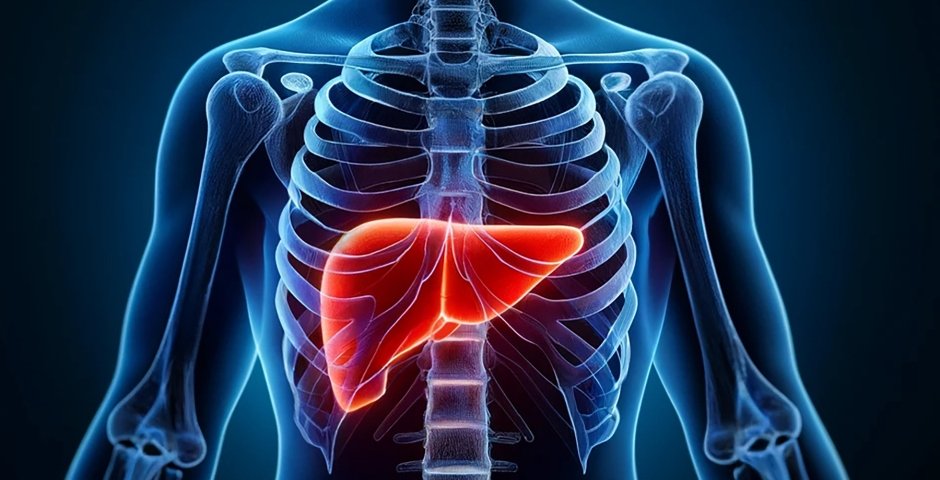
A liver transplant is a life-saving procedure for patients suffering from end-stage liver diseases or acute liver failure. India has emerged as one of the top destinations for liver transplants due to its advanced medical infrastructure, highly skilled surgeons, and cost-effective treatments. Patients from across the globe choose India for this procedure, thanks to its excellent success rates and comprehensive care.
This blog explores all aspects of liver transplant in India, including the procedure, eligibility, leading hospitals, costs, and why India is a preferred choice for this critical surgery.
Understanding Liver Transplant
A liver transplant involves replacing a diseased liver with a healthy one, either from a living or deceased donor. The liver is a vital organ responsible for detoxifying the blood, producing bile, and storing nutrients. When it fails to function properly, a transplant becomes essential to save the patient’s life.
Types of Liver Transplants
- Living Donor Liver Transplant (LDLT):
- In this procedure, a healthy individual donates a portion of their liver, which regenerates over time in both the donor and recipient.
- Deceased Donor Liver Transplant (DDLT):
- This involves transplanting a liver from a deceased donor. It often requires patients to be on a waiting list.
- Split Liver Transplant:
- A single deceased donor’s liver is divided to save two recipients, typically an adult and a child.
- Auxiliary Liver Transplantation:
- A portion of a healthy liver is transplanted alongside the diseased liver, which may recover and resume normal function over time.
Who Needs a Liver Transplant?
Liver transplants are typically recommended for patients with:
- Chronic Liver Diseases: Conditions like cirrhosis, hepatitis B or C, and alcoholic liver disease.
- Acute Liver Failure: Sudden liver failure caused by infections, toxins, or autoimmune diseases.
- Liver Cancer: Early-stage liver cancer that hasn’t spread beyond the liver.
- Genetic Disorders: Conditions such as Wilson’s disease and hemochromatosis.
Symptoms Indicating Liver Failure
- Jaundice (yellowing of the skin and eyes)
- Severe fatigue and weakness
- Abdominal swelling (ascites)
- Confusion or mental disorientation
- Nausea and vomiting
- Unexplained weight loss
Early diagnosis and timely intervention are critical to improving outcomes.
Liver Transplant Procedure in India
- Pre-Transplant Evaluation:
- Comprehensive tests, including blood tests, imaging studies, and cardiac evaluations, are conducted to assess the patient’s suitability for a transplant.
- Donor Selection:
- If a living donor is involved, their health and compatibility are thoroughly evaluated. Deceased donor transplants require placement on a waiting list.
- Surgical Procedure:
- The surgery typically lasts 6-12 hours and involves the removal of the diseased liver and replacement with a healthy one. Advanced techniques, such as minimally invasive laparoscopic methods, are used in leading hospitals.
- Post-Operative Care:
- Patients are monitored in intensive care for the initial days to ensure there are no complications. Long-term follow-ups and medications are required to prevent organ rejection.
Leading Hospitals for Liver Transplant in India
India is home to some of the world’s best hospitals for liver transplants. Here are a few renowned centers:
- Medanta – The Medicity, Gurgaon:
- Known for its comprehensive liver transplant program with high success rates.
- Apollo Hospitals, Chennai and Delhi:
- Pioneers in liver transplants with a dedicated team of hepatologists and surgeons.
- Global Hospitals, Mumbai and Hyderabad:
- Offers advanced liver care and transplant facilities with world-class infrastructure.
- Max Super Speciality Hospital, Delhi:
- Equipped with cutting-edge technology for liver transplants and post-operative care.
- Fortis Healthcare, Delhi and Bangalore:
- Recognized for its experienced liver transplant teams and excellent patient care.
- Manipal Hospitals, Bangalore:
- A trusted name for organ transplants, including complex liver surgeries.
Cost of Liver Transplant in India
One of the major reasons patients choose India for liver transplants is the affordability of treatment without compromising quality. Here’s an approximate cost breakdown:
- Pre-Transplant Evaluation: $2,000 – $4,000
- Liver Transplant Surgery: $30,000 – $50,000
- Post-Operative Care and Medications: $5,000 – $10,000
These costs are significantly lower compared to Western countries, where similar procedures can cost upwards of $200,000. Despite the lower cost, the success rates in India are on par with global standards.
Visit here:- Liver Transplant Cost in India
Why Choose India for Liver Transplants?
India has become a global leader in liver transplants for several reasons:
- Highly Skilled Surgeons:
- Indian surgeons are internationally trained and have extensive experience in performing complex transplants.
- Advanced Technology:
- Hospitals in India are equipped with state-of-the-art facilities, including robotic surgery and advanced imaging techniques.
- Affordable Costs:
- The cost of liver transplants in India is significantly lower than in Western countries, making it accessible to a wider range of patients.
- High Success Rates:
- Success rates for liver transplants in India are comparable to global benchmarks, often exceeding 90% for living donor transplants.
- Comprehensive Care:
- From diagnosis to post-surgical rehabilitation, Indian hospitals offer holistic care.
- Support for International Patients:
- Hospitals assist with medical visas, travel arrangements, and accommodation.
- Short Waiting Times:
- Deceased donor waiting lists are relatively shorter in India compared to other countries.
Recovery After Liver Transplant
Recovery is a gradual process and requires strict adherence to medical advice. Here’s what to expect:
- Hospital Stay:
- Most patients spend 2-3 weeks in the hospital post-surgery, including a few days in intensive care.
- Medications:
- Lifelong immunosuppressive medications are necessary to prevent organ rejection.
- Lifestyle Adjustments:
- Patients need to maintain a healthy diet, avoid alcohol, and manage stress to ensure the transplanted liver functions optimally.
- Regular Follow-Ups:
- Periodic check-ups are crucial to monitor liver function and overall health.
Preparing for a Liver Transplant in India
For international patients, proper planning can make the treatment journey smoother. Here’s a checklist:
- Medical Records:
- Ensure you carry all relevant medical documents, including test reports and prescriptions.
- Hospital Research:
- Choose a hospital with a proven track record in liver transplants.
- Financial Planning:
- Confirm the estimated costs and plan for additional expenses like travel and accommodation.
- Travel Arrangements:
- Work with the hospital’s international patient care team to organize visas, flights, and lodging.
- Post-Operative Support:
- Plan for follow-up care and rehabilitation before returning to your home country.
Also visit:- Best Organ Transplant Doctors In India
Conclusion
A liver transplant is a complex yet life-saving procedure, and India offers some of the best medical care in the world for this critical surgery. With experienced surgeons, advanced technology, and affordable costs, the country has become a trusted destination for patients from around the globe.
If you or a loved one is considering a liver transplant, India’s medical expertise and patient-centric approach can provide a new lease on life. By choosing the right hospital and following a well-structured plan, patients can look forward to a successful recovery and a healthier future.







